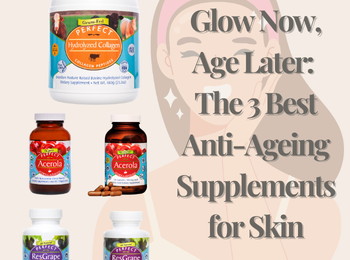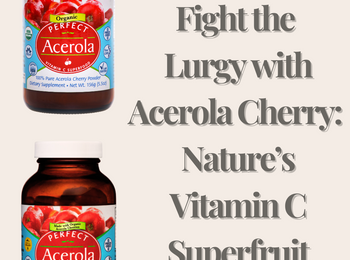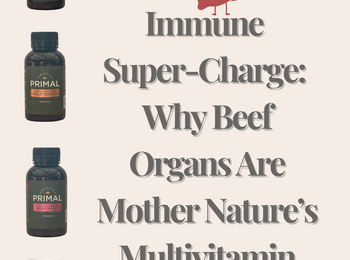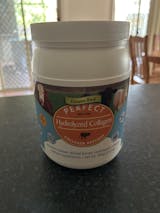Share
The Anti-Cancer Effects of Whey Protein
Whey protein, a high-quality protein derived from milk, has been studied for its potential health benefits, including its anti-cancer properties. Its rich nutrient profile and bioactive compounds make it a unique supplement for supporting overall health and possibly playing a role in cancer prevention and management.
Key Anti-Cancer Properties of Whey Protein
-
High Glutathione Levels (Antioxidant Support)
- Whey protein contains high levels of cysteine, an amino acid crucial for synthesising glutathione—a powerful antioxidant that protects cells from oxidative stress and DNA damage.
- Oxidative stress is a significant contributor to cancer development, and maintaining high glutathione levels can help reduce this risk.
-
Immune System Boost
- Whey protein is rich in immunoglobulins and lactoferrin, which have been shown to support immune system function.
- A robust immune system is vital for identifying and destroying abnormal or cancerous cells before proliferating.
-
Inhibition of Tumour Growth
-
Research suggests that specific bioactive components in whey, such as lactoferrin, may inhibit the growth of cancer cells. Lactoferrin has been shown to:
- Reduce tumour size.
- Suppress angiogenesis (formation of new blood vessels that feed tumours).
- Trigger apoptosis (programmed cell death) in cancer cells.
-
Research suggests that specific bioactive components in whey, such as lactoferrin, may inhibit the growth of cancer cells. Lactoferrin has been shown to:
-
Enhancing Chemotherapy and Radiation Outcomes
- Whey protein may protect healthy cells during cancer treatments like chemotherapy and radiation by reducing oxidative damage.
- It can also enhance the effectiveness of treatments by improving patients' nutritional status and overall resilience.
-
Support for Lean Body Mass
- Cancer and cancer treatments often lead to muscle wasting and malnutrition. Whey protein's high-quality amino acids can help maintain lean body mass and improve recovery, especially during or after treatment.
-
Rich Source of Branched-Chain Amino Acids (BCAAs)
- Whey protein is a rich source of BCAAs like leucine, which supports cellular repair and may play a role in regulating cancer-related metabolic processes.
Research Findings
- Studies have demonstrated that diets supplemented with whey protein may reduce the incidence and size of chemically induced tumours in animal models.
- In vitro studies show that whey protein can suppress the growth of specific cancer cells, such as breast, colon, and prostate cancer cells.
- Clinical studies suggest that whey protein supplementation can improve cancer patients' quality of life and nutritional status.
How to Use Whey Protein for Support
- Dosage: Consult with a healthcare professional to determine the appropriate dosage based on individual needs and health conditions.
- Choose High-Quality Whey: Opt for minimally processed, high-purity whey protein isolate or concentrate, free of additives, artificial ingredients and GMOs
- Combine with a Healthy Diet: To maximise its benefits, whey protein should be part of a balanced diet rich in quality protein, vegetables, whole foods, and superfoods.
Considerations and Precautions
- Whey protein is generally safe, but individuals with dairy allergies or lactose intolerance should choose lactose-free or hypoallergenic formulas.
- Those with existing health conditions, particularly kidney or liver issues, should consult their doctor before using whey protein supplements.
Whey protein isn't a cure for cancer, but its potent antioxidant, immune-boosting, and anti-inflammatory properties make it a valuable ally in cancer prevention and management. As part of a comprehensive health strategy, whey protein can support your body's natural defences and improve overall well-being. Always consult a healthcare provider before incorporating supplements into your routine.
References:
https://europepmc.org/article/MED/29565716
https://www.news-medical.net/news/20240404/The-whey-to-go-Researchers-unlock-the-potential-of-whey-derived-proteins-for-cancer-prevention.aspx
https://link.springer.com/article/10.1007/s44187-024-00171-y
https://www.sciencedaily.com/releases/2003/05/030529081202.htm
Disclaimer:
The information provided in this communication is for informational and educational and educational purposes only and is not intended to substitute for professional medical advice, diagnosis, or treatment. While we discuss certain foods and supplements that may have potential anti-cancer benefits, the Therapeutic Goods Administration (TGA) or any other regulatory body has not evaluated these statements.
We do not claim that these foods or supplements cure, treat, or prevent any disease, including cancer. Results may vary, and individual outcomes depend on various factors, including health history, genetics, and overall lifestyle.
Always consult with a qualified healthcare professional before making any changes to your diet, lifestyle, or supplement regimen, particularly if you have an existing medical condition, are pregnant or breastfeeding, or are taking medications.
By purchasing or using the products mentioned, you acknowledge that you do so at your discretion and risk. We expressly disclaim any responsibility or liability for any adverse effects, losses, or damages resulting from using or relying on the information or products discussed.
For further advice or concerns, please consult your healthcare provider.





